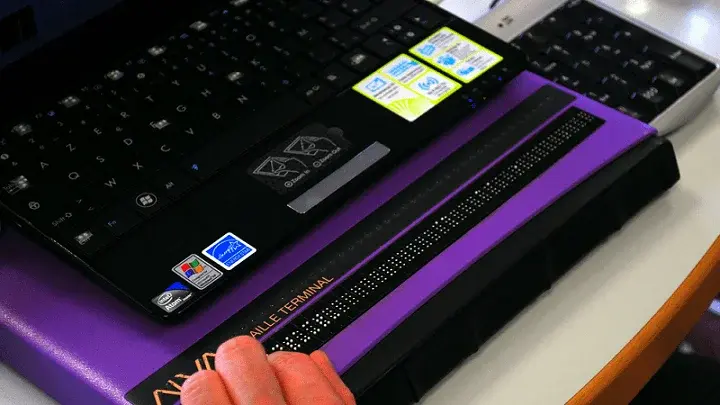One industry that undoubtedly experiences increased business during the warm weather months is hotels and hospitality. Many people visit hotel websites as they try to plan that perfect summer vacation.
In this blog, I will discuss some of the most common accessibility challenges on hotel websites. The difference is that I will examine this topic area from a mobile device-focused lens. In other words, I will discuss accessibility issues related to touch-based screen readers on portable devices. In preparation for this blog, I explored a variety of hotel websites on my tablet.
The following narrative will reflect my findings. I would like to note that these issues can also affect mobile apps because they are often the direct ports of a mobile website.
Customer Reviews: A Mobile Accessibility Challenge
One of the most common interactions a user has with a hotel website is locating and reading customer reviews on a given property. The most valuable information about a hotel is often experiential customer data. I encountered one consistent issue when examining customer reviews on the hotel websites I explored.
The entire review length is often collapsed to save space on the small screens common on mobile devices, with the interface displaying only the first few lines. At the end of the text is usually a button that will expand the view to show the entire review text on screen. I could easily find this “Expand” button when swiping through the reviews.
However, activating this option had no bearing on the screen reader’s behavior on several sites I used. I still only heard the first few lines of the review. Interestingly enough, the “Expand” button was announced as “Collapse Full Text,” even though the button seemed unresponsive.
After consulting a sighted user, I was informed that the button was visually expanding and collapsing the text. However, the screen reader did not recognize this change and was still reading the abridged version of the review.
Both manual swipe navigation and direct touch yielded the same negative results. This is a major accessibility flaw that needs to be fixed to improve mobile hotel website accessibility.
Navigating Long Pages: Mobile Screen Scrolling Issues
Hotel website listing pages contain a lot of information. As a result, they are often very long and require three or four downward scrolls to reach the bottom effectively. On several of the hotel sites I encountered, I encountered a very frustrating navigation issue related to page scrolling. As I swiped through the page’s contents manually and neared the bottom of the screen, the screen reader focus would suddenly jump back to the top of the current page instead of moving ahead to the top of the next page. If I tried to use a system command to scroll the screen down manually, I would be taken too far down the page and end up way past the point where the screen reader lost focus. This is a very strange issue that showed up repeatedly.
To ensure that it was not something with the system I was using, I tried the same task on two other devices and had the same exact results. This screen scroll problem made it very difficult to chronologically read the details of a hotel listing, such as the room’s text description, reservation cancelation policy, and pricing. While I am not sure exactly what I missed, I am convinced that the random screen reader focus jumping caused me to lose out on valuable information. I know this due to oddities such as two-room listings with no price and another listing showing only 23 customer reviews despite saying there were over 50.
Travel Date Input: The Struggles with Scroll Wheels
I was very glad that inputting my desired travel dates for testing purposes seemed to work so much better with a mobile screen reader than with a desktop version. However, there was one problem that I encountered. Most sites I used employed scroll wheels for month, day, and year input. While I usually do not have accessibility trouble with these scroll wheels, a few of them gave me a hard time. If working correctly, a one-finger swipe up or down will adjust the value of the scroll wheel picker by one unit.
On a few occasions, a one-finger swipe would move the scroll wheel by a random number of units, usually greater than five. This behavior was inconsistent, with different one-finger swipes up or down moving the picker by varying values. When I encountered this issue on two different sites, there was, unfortunately, nothing I could do to overcome it. It was simply impossible to granularly control the month, day, and year values, leaving me unable to successfully input my desired dates of travel.
Comparing Mobile and Desktop Accessibility
The accessibility issues that commonly effect hotel websites are different on mobile devices as compared to desktop systems. I hope that this narrative has helped to illustrate some of these differences. To offer the best experience to all users, any hotel’s mobile website and app need to be just as accessible as the main website.
Ready to get started on planning your digital accessibility initiative? Download our digital accessibility for help. 
Editor's Note: This is a guest post from our marketing intern, Michael Taylor. This post reflects his opinions and experiences. Read more about Michael in his introductory post here.







